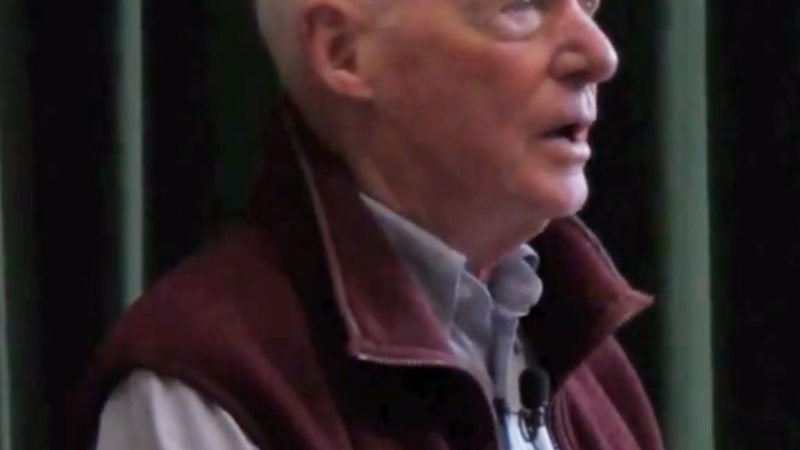A Veterans Day Tradition at Waynflete
The other day, my literature class was deep into a discussion about Mohsin Hamid’s novel, The Reluctant Fundamentalist. The discussion pertained to the protagonist’s complex perception of America’s military reach and general influence in the world. As time was running out on the period and the discussion not yet concluded, I was on the alert for an effective way to tee up its continuance into class the next day. Then a student’s question reminded me of something that science teacher Neil Rice had said the previous fall in his Veteran’s Day talk about the responsibility of citizens in a democratic society to be actively engaged in their nation’s discourse on foreign policy. Before they left, I asked my students to recall what Neil had said and to be prepared by the next class to relate his message to the topic at hand.
In 2009, with the United States embroiled in two wars, the Upper School faculty and I realized how far we had strayed from the original intent of Veteran’s Day. In its first iteration, Armistice Day was meant as a time when people across the country would pause in their daily activities at 11:00 each November 11 to share a moment of silence in their communities to commemorate when the guns fell silent at the end of the Great War nearly a century ago. Since then, as it became clear that the Great War was not proving to be “the war to end all wars” as people then had hoped, the intent changed along with the name to recognize the sacrifice of all those who have served in the military, and instead of being a pause in the daily routines of communities across the country, it became a national holiday. One unintended consequence of the latter change, at least at Waynflete we realized, was that the higher purpose of the holiday had long ago become secondary to the fact that it was a day off from school.
We decided to start a new tradition in the Upper School intended to remind our students of that higher purpose by inviting a veteran of the armed services to speak at an Upper School assembly each November. In 2009, Joshua Broder (’97) spoke about being in the Civil Air Patrol while in high school and his subsequent military service as an Army Captain and communications specialist, including the 13 months he spent in Afghanistan. The next year, we were addressed by Robert Rheault, a US Army colonel, who spoke not only of the lessons learned from his 23 years of military service but also from his extraordinary personal transition from being a Special Forces commander in the jungles of Vietnam to being an assistant trip leader for Outward Bound. A video of his talk is linked here. The following year, we were addressed by history teacher Bob Johnson, who served in the Air Force in Thailand during the Vietnam War. Last year we were addressed by Neil Rice, who drew lessons from his 15 years in the US Navy, including being in ROTC while in college, running the nuclear reactor on a submarine, teaching submarine tactics and navigation, and finally training Iraqi Special Police in Baghdad in 2005. This past fall, Doug Rawlings, a Vietnam veteran and a founding member of Maine Veteran’s for Peace, read from his collection of poems that were inspired by his experiences at war.
Our hope in starting a Veteran’s Day speaker tradition was to help make our students more aware of the world around them and their responsibility as citizens of a democracy that possesses the greatest military might history. In fact, my intent in referencing Neil’s talk in my class was exactly the same. I remembered that toward the end of his talk, Neil had named the various resources that our students have at hand to make themselves informed citizens because “at Waynflete, you are surrounded by people who embody the principles of freedom.” He concluded by saying:
“Do you want to honor our veterans? Then get in the middle of everything when it comes time to decide where they are going next. If our military is a hammer, then you are the hand. Don’t blindly trust the media or our government. Question everything. Don’t give up your freedom to wield the hammer or keep it at your side. Members of our armed forces have no control over where they go, but you do. Let them be proud of their service. Let them, from now on, not be aggressive pursuers of our way of life, but true defenders of our freedom.” (The full text of Neil’s talk is linked here.)
And yes, my students remembered Neil’s talk and what he had called on them to do. Knowing that they are listening reminds us daily of our solemn mission as educators to engage our students with the world around them through meaningful and thought provoking programming such as our Veteran’s Day speaker tradition. And knowing that our students are not only listening but that they are also smart and savvy and full of hope and integrity is good reason for optimism about our collective future.



